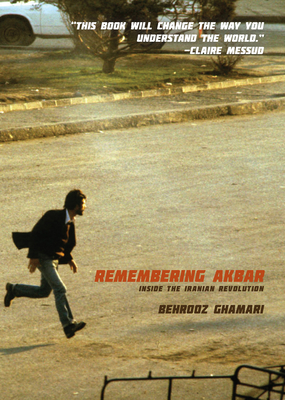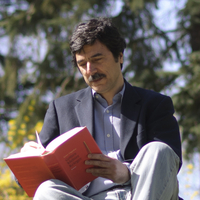
Remembering Akbar:Inside the Iranian Revolution
Interview with Behrooz Ghamari
February 10, 2017Sign Up to listen to full interview.
About Behrooz Ghamari
Behrooz Ghamari is Professor of History and Sociology at University of Illinois, Urbana-Champaign. He is the author ofIslam and Dissent in Postrevolutionary Iran and Foucault in Iran: Islamic Revolution after the Enlightenment.
Interview Summary
As the cold war entered in the late seventies, the venue shifted to Middle East and especially to Iran and Iraq as Western nations divided the region to friends and enemies to maintain the supply of oil, the commodity that drove the much of the economic engine.
Iran, a major exporter of oil with a large and young population, became the hotbed of revolution that led to the American installed Shah regime only to be equally replaced by brutal theocracy that only focused on the survival of its existence and was quick to imprison political opponents.
In an interview with Readara author Behrooz Ghamari, a former political prisoner between 1981 and 1985, recounts his experience of what it is like to be on a death row. Ghamari packed with 25,000 prisoners in a jail built to hold only 1,200 and knowing well that any day may be the last day of his life never manages to give up hope.
Not many people live to tell the tale once they are condemned to death row but Ghamari in an emotional but well-balanced narrative describes the daily struggles of life in the Tehran’s most infamous prison. As the daily life continues in the prison while waiting for turn on death row, inmates display incredible strength to live and face potential deadly outcome.
Key Topics
- How did Iran come to be radicalized by the global powers?
- Why did the Shah of Iran and the regime that followed his reign remain unpopular?
- What was the Iranian revolution expected to achieve?
- Why is the Iranian revolution still unfinished?
- What was life in the Evin Prison like, and how did political prisoners deal with pain and suffering?
- What were the relationships between prisoners, as well as with guards and interrogators?
- How did Iran come to be radicalized by the global powers?
- Why did the Shah of Iran and the regime that followed his reign remain unpopular?
- What was the Iranian revolution expected to achieve?
- Why is the Iranian revolution still unfinished?
- What was life in the Evin Prison like, and how did political prisoners deal with pain and suffering?
- What were the relationships between prisoners, as well as with guards and interrogators?
